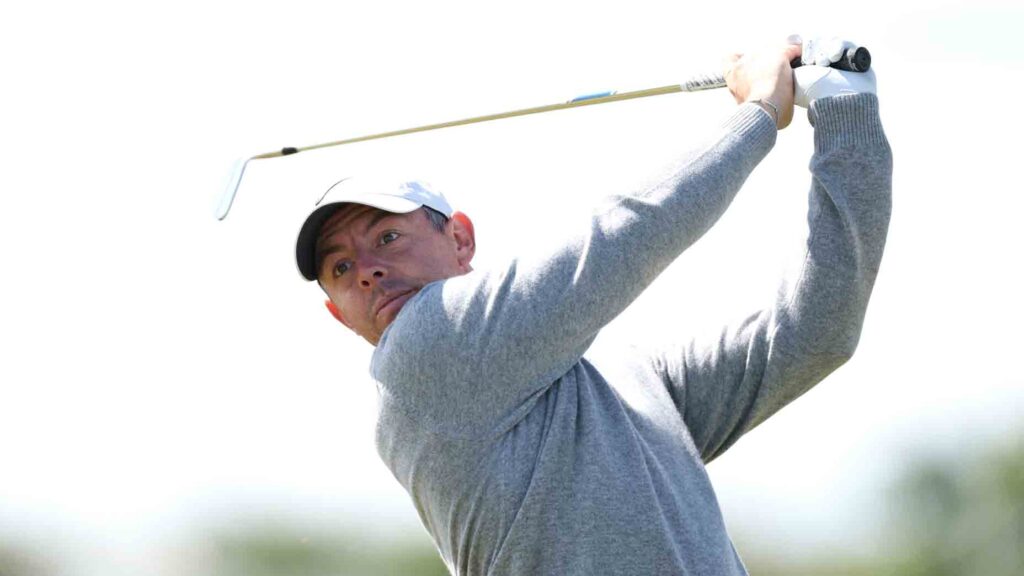Rory McIlroy: Navigating the Challenges of a Pro Golfer’s Life
Rory McIlroy, the iconic Northern Irish golfer known for his impressive achievements on the course, recently shared insights about the often grueling lifestyle of professional golfers. During a casual conversation with fellow golfer Justin Rose, McIlroy reflected on the unique challenges that come with a career defined by constant competitions and an almost year-round schedule. Rather than seeking sympathy for this demanding lifestyle, he emphasized the need for balance and mental detachment, especially during intense seasons as they approach marquee events like the Genesis Scottish Open.
Being a professional golfer is unlike the traditional 9-to-5 work schedule; instead, players like McIlroy engage in a 1-to-52 lifestyle, where every week presents a new tournament, new challenges, and new pressures. The relentless nature of professional golf can often feel monotonous, but the experience of playing closer to home allows players like McIlroy to reconnect with their roots and momentarily escape the grind of their hectic careers.
As McIlroy mentioned, the past weeks have felt "grinding," prompting him to seek moments of detachment from the high-intensity demands of tour life. With the event taking place in Scotland, he and Rose discussed how returning to familiar grounds fosters a sense of belonging that can refresh their competitive spirits. McIlroy pointed out the importance of taking breaks to maintain a healthy mindset, explaining, “Sometimes you need that to completely get away from — I feel like this world of golf can become all-encompassing if you let it."
By week 28 of 2025, McIlroy’s year has already been filled with significant accomplishments. His victories include winning prestigious tournaments such as Pebble Beach, the Players Championship, and, most notably, the Masters, where he completed the elusive career Grand Slam. However, this level of success comes with pressure, and McIlroy admitted that his performance has varied in recent months. Questions regarding his equipment, including his driver, add to the scrutiny. Despite these challenges, fans remain optimistic about his resilience and ability to bounce back.
McIlroy’s thoughts on longevity in sports resonate widely, emphasizing that success requires continuous effort and adaptation. As he observed, "One of the underappreciated things about any sport" is the need for athletes to evolve. Drawing comparisons to other sports icons—like Novak Djokovic in tennis and Cristiano Ronaldo in soccer—McIlroy noted that maintaining a high level of performance into one’s 30s can be a rarity, underscoring the need for seasoned players to adapt to new challenges while keeping their game sharp.
The golf circuit is increasingly competitive, with younger talents constantly emerging. McIlroy finds himself in a position where he must not only stay relevant but also outperform a new generation of players eager to leave their mark on the sport. “You have to adapt your game to make sure that you’re able to hang with these generations,” he said, highlighting the importance of keeping pace with the evolving trends in golf. This adaptability is vital; players need to evaluate what strategies work for current top performers to stay ahead of the curve.
At 36, McIlroy is well aware of the need for balance amid his professional commitments. He has started prioritizing family over the relentless pursuit of titles. Settling into a new home in England and spending quality time with his daughter, Poppy, have been significant steps in reestablishing that balance. This year, McIlroy has aimed not just for golf success but also for personal fulfillment, capturing moments of joy outside the sport, such as attending a German soccer match and skiing with his daughter.
One of McIlroy’s most cherished goals has been the Grand Slam, an achievement that feels rewarding after years of effort. Nevertheless, he grapples with the pressure that may come from newfound expectations. “You dream of winning at Augusta,” he noted, reflecting on how the burden of expectations can impact performance. The weight of accomplishing such prestigious feats might free him up, but it could also lead to complications as he redirects his focus.
Despite the inevitable changes that come with time, McIlroy still harbors a tremendous drive to improve his game. He recognized that even after 18 years on tour and having won professional events for over 16 years, there are always aspects he can refine. "I think that’s a big piece of it," he affirmed, indicating that the journey of growth is continuous for any athlete, regardless of their achievements.
In conclusion, Rory McIlroy exemplifies resilience, adaptability, and the importance of mental health within the competitive landscape of professional golf. As he navigates the complexities of schedule demands, familial commitments, and the pressures of maintaining peak performance, he continues to inspire both peers and fans alike. His journey serves as a reminder that longevity and success require constant evolution, both on and off the course. With several high-stakes tournaments ahead, all eyes will be on McIlroy to see how he balances his rich legacy with the relentless drive to remain at the forefront of the game.


